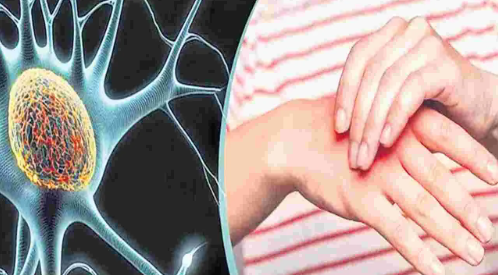The recent death of a woman from Guillain-Barré Syndrome (GBS) has sent shockwaves through Visakhapatnam, a coastal district already experiencing an alarming increase in cases of the rare neurological disorder. Five patients are currently receiving treatment for GBS at King George Hospital (KGH), prompting health officials to issue an urgent call for increased awareness and swift medical intervention.
The rising number of GBS diagnoses has left the local community shaken, with residents expressing concerns about the spread of the illness and the adequacy of available resources. While KGH doctors report the patients’ conditions as stable, the surge in cases has amplified public anxiety.
GBS, a condition where the immune system attacks the nervous system, is often triggered by an infection. Symptoms, which can appear one to two weeks after a fever, cold, cough, diarrhea, or other viral or bacterial infections, may include numbness in the limbs, muscle cramps, breathing difficulties, or a sensation of a lump in the throat. Health officials emphasize that timely medical intervention is critical, as untreated GBS can lead to life-threatening respiratory complications.
Campylobacter jejuni, a bacterium commonly associated with diarrhea and spread through contaminated food and water, has been identified as a significant contributor to GBS cases. While this bacterium can trigger severe diarrhoea, with some patients developing GBS symptoms shortly after recovery, GBS can also occur in individuals without a history of diarrhoea.
Public health officials are urging residents to take preventive measures, including drinking boiled or filtered water, consuming freshly cooked food, avoiding street food, and maintaining proper hygiene. A healthy lifestyle, including a balanced diet, regular exercise, and sufficient rest, is also crucial for boosting immunity.
The standard treatment for GBS involves immunoglobulin injections, with plasmapheresis (a blood purification procedure) used in more severe cases. However, both treatments carry risks, including potential complications like lowered blood pressure and increased susceptibility to infection. A critical challenge facing KGH is a shortage of immunoglobulin injections, which are essential for GBS patients. These injections, costing between Rs. 10,000 and Rs. 15,000 per vial, are reportedly in short supply at the hospital.
A 50kg patient may require up to seven vials of immunoglobulin daily, costing upwards of Rs. 1 lakh. Allegations have surfaced regarding the case of the woman who died on Monday, with claims that she received only two injections from the hospital, forcing her family to procure the remaining doses externally. Hospital authorities have yet to comment on these allegations. Adding to the controversy, the woman’s official cause of death was reportedly changed from GBS, as initially diagnosed by doctors in the General Medicine Department, to a heart attack. This change has fueled rumours of external pressure influencing the reclassification.
As health officials continue to monitor the situation, the shortage of essential treatments and the growing fear surrounding GBS remain pressing concerns for the Visakhapatnam community.
Rising Guillain-Barré Syndrome cases spark public concern




